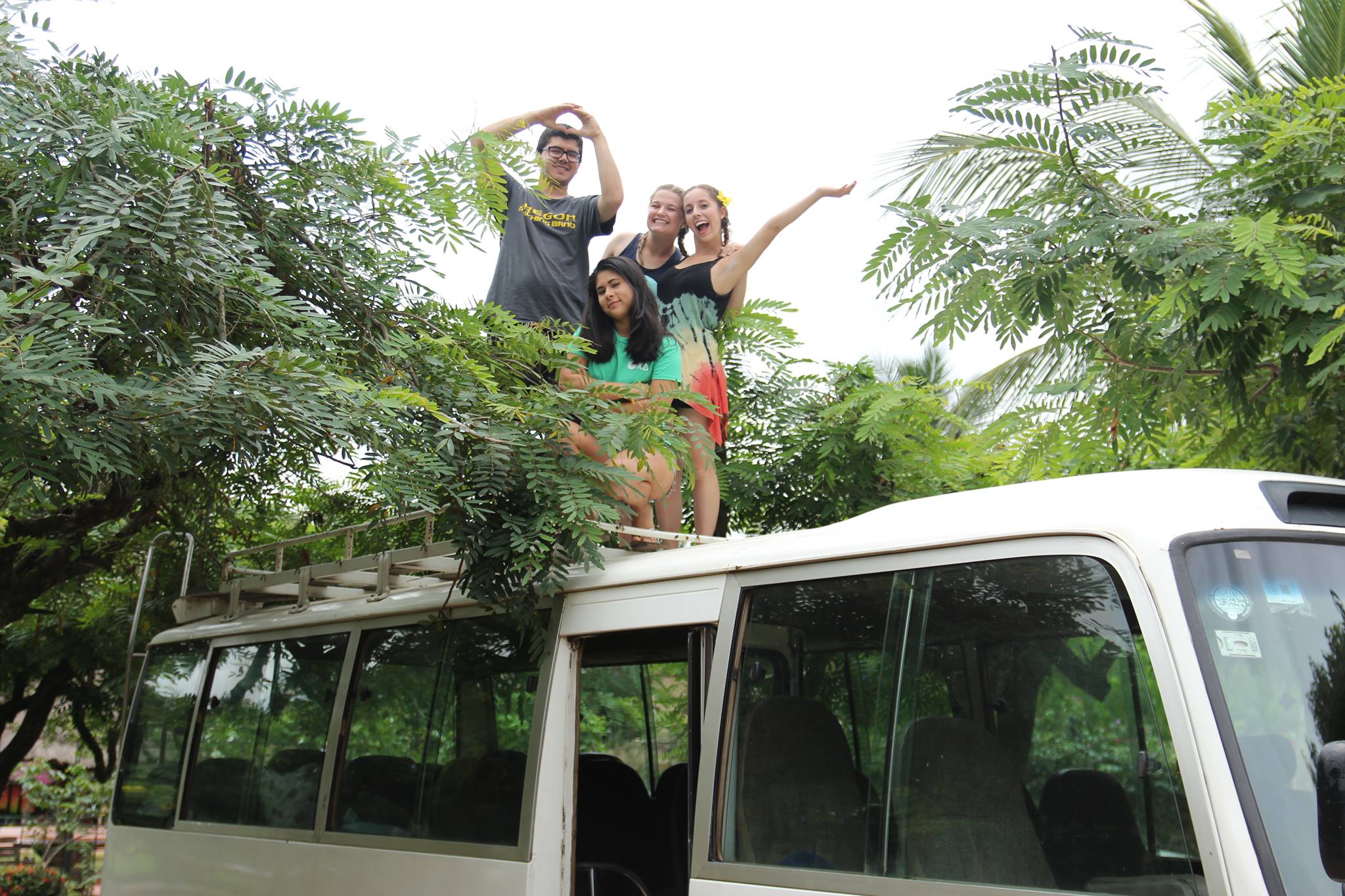It’s been over a week since I got off the plane at PDX and took a big, deep breath of clean Pacific Northwest air. I’m happy to be home, but the transition back to “normal” life hasn’t been as easy as I’d imagined. It’s hard to reconcile all of my Ghanaian experiences with my life and identity in Portland. When people ask about my experience, I struggle to find the words.
I recently re-read this piece that I wrote for StarrFM near the end of my internship. (It was published online, and broadcast on air in a slightly different form.) These words feel like an important reminder right now, as I try to make sense of an incredible six weeks.
—
In her famous 2009 TED talk, author Chimanda Ngozi Adichie warned against “the dangers of a single story.” Adichie argued that when you “show a people as one thing, as only one thing, over and over again. . .that is what they become.” I know that all too often, American media tells a limiting, dehumanizing single story about Africa as a continent.
When I return home to the States next week, people will ask me lots of questions. How was Africa? How was Ghana? As I reflect on my time here, I wonder: how will I respond? What story will I tell?
Six weeks of images and interactions flood my mind as I look for answers, each different from the last.
I think of my weekend in Cape Coast, where I toured two slave castles and faced the horrible legacy of my ancestors. I tried to comprehend the incredible injustice of slavery, and mourned for the human beings held and tortured in the castles’ terrible dungeons – human beings whose slave labor would later build the country I call home. I don’t know if I’ll ever be comfortable with that reality.
Yet at the same time, I remember reveling in the beauty of the Central Region. My friends and I photographed the colorful boats pushing through the waves in Elmina’s lively fishing villages. We all got sunburns while running through the sand and water.
I think of Kumasi, where statues of cultural figures, not political heroes, adorn the traffic circles. I noticed NPP flags everywhere, and though the streets were quieter and cleaner than Accra’s, the central market bustled with life. Walking through the market, I was swept into a funeral party in the middle of the street. I danced with a crowd of strangers, celebrating the life of someone I will never meet.
I think of the morning commute in Accra: an hour and a half staring out the window of a tro-tro. Crammed shoulder to shoulder with Ghanaians, I learned my route from home to work: straight down the busy road, right at Flagstaff House, then alight at Nima Junction. I bought bufrots out the window and got a glimpse of life as a professional in Ghana’s capital city.
At work, I experienced Ghanaian government, politics and business first-hand, covering events with co-workers who were always ready to answer my questions. I learned about the importance of radio to Ghanaian culture — in the United States, radio has become an afterthought to TV and online media. Here, however, it thrives.
I think of my street in East Legon, where strangers greet you and ask for your number – behavior unheard of in my country. I think of the lush green mountains of the Volta region. I think of handshakes with snaps, calls of “Charley!” and a Club beer on a Friday night.

I think of my housemates: the 14 other American students who spent these six weeks at their own media internships in Accra. Each has their own unique collection of stories and experiences to take home.
This multitude of examples is proof: like any other nation, Ghana cannot be explained in just one story, or understood in one six-week trip. Neither can Africa as a whole.
When I go home and answer the questions that will certainly come my way, I hope I can convey this to my fellow Americans. My experience in Ghanaian culture has been rich, exciting, and above all, varied. I cannot tell a single story, and I won’t try.
